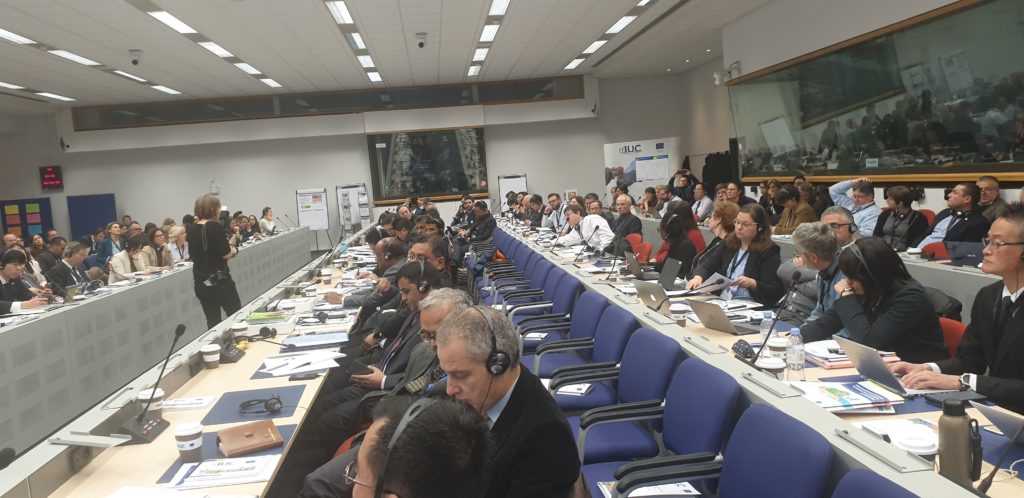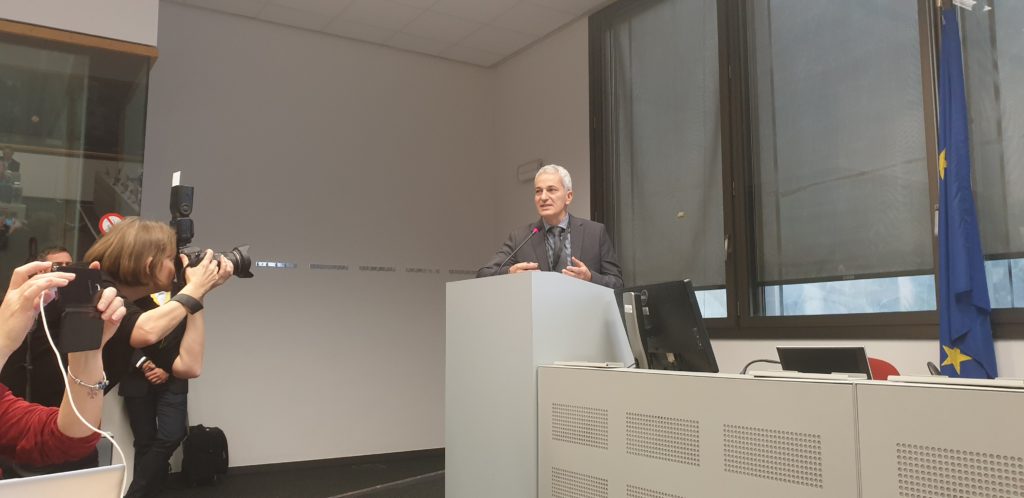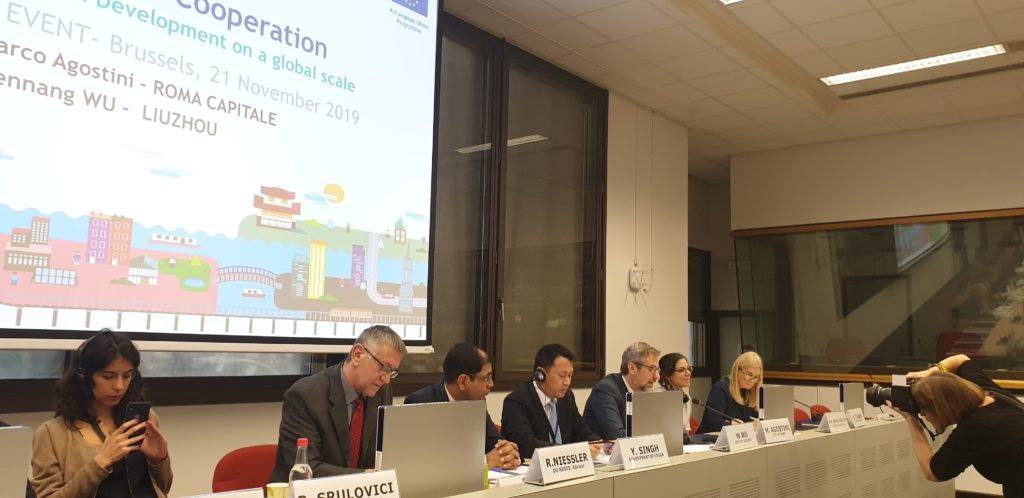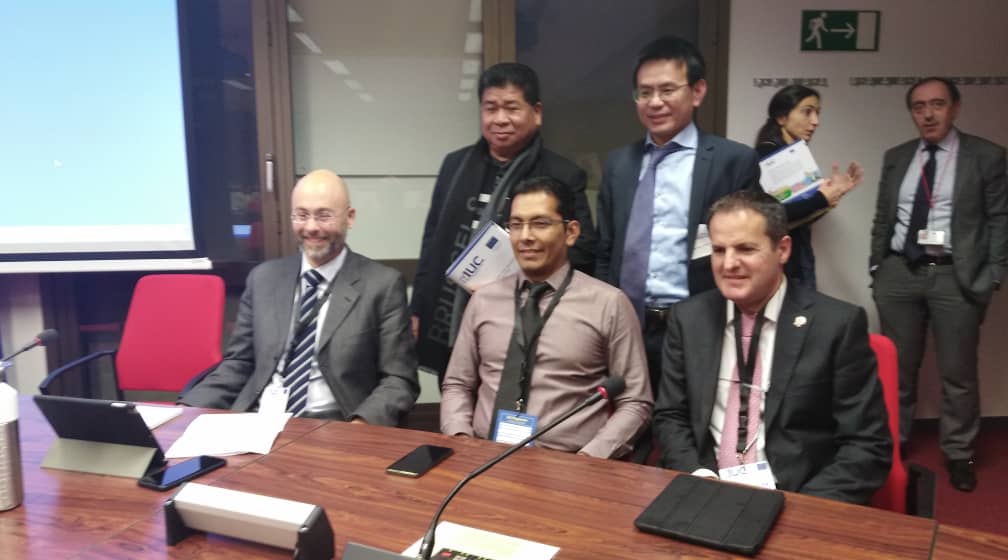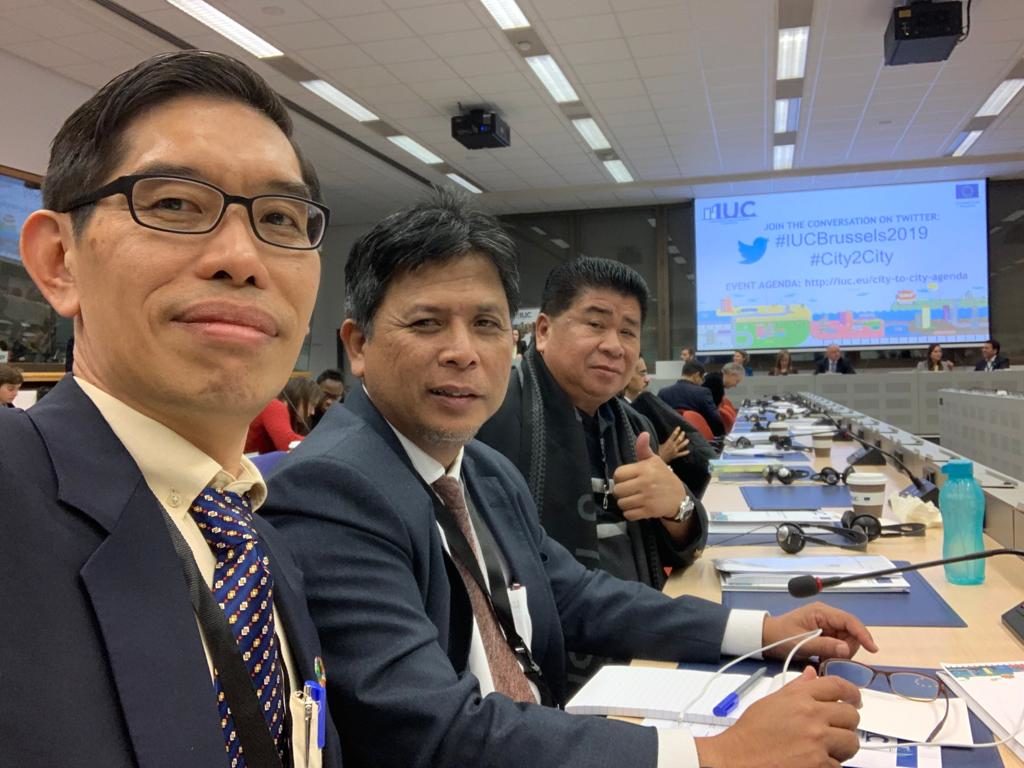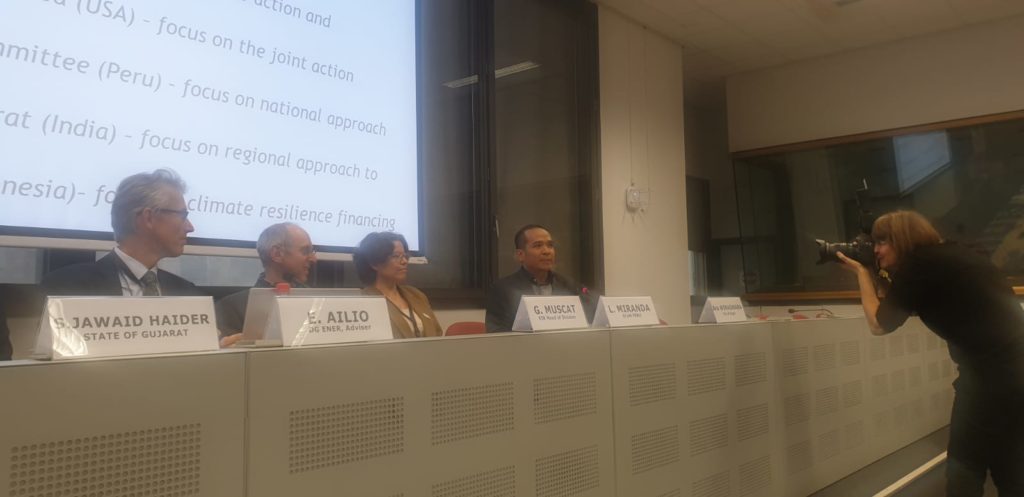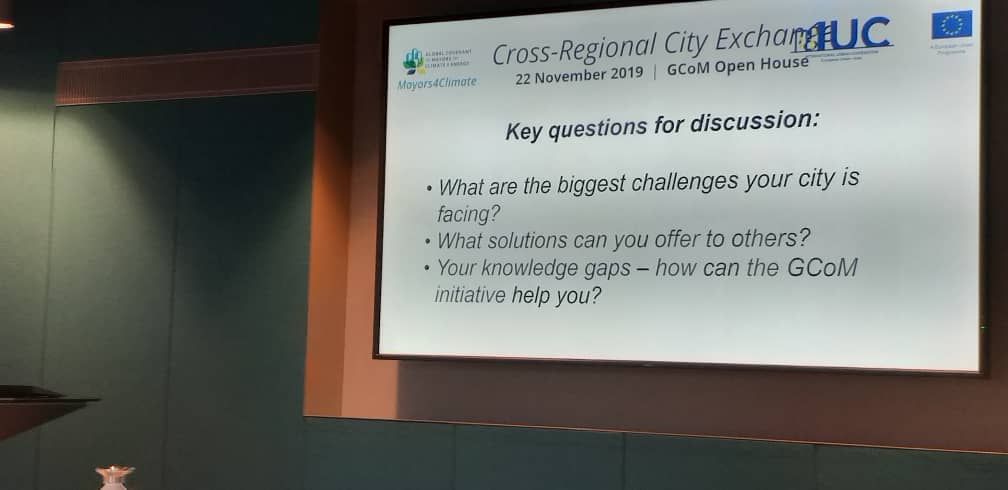NOTE: FOR DETAILS ON THE BILATERAL COOPERATION VISITS AS WELL AS ON THE CLUSTER MEETINGS, PLEASE SEE HERE
More than 200 representatives of local and regional governments from the Americas, Asia and Europe met in Brussels on 21 November for the third annual City-to-City Event of the International Urban Cooperation (IUC) programme. Once more, cities came together to reflect on results of their pairings and of the crucial role inter-city cooperation plays in advancing sustainable communities. The EU-funded IUC programme pairs European cities with peers from other world regions. Cooperation with Asia, for example, has prompted the opening of a direct freight train connection from Mannheim (Germany) to Chongqing (China).
“Cooperation during last years has taught us that we have a lot of knowledge and experience to offer each other to turn global challenges into opportunities for innovation and urban transformation. It is here that words become action. This is thanks, first and foremost, to the multitude of sub-national actors engaging in the programme, whether regional governments, large cities, small municipalities or local leaders. This event is another opportunity to take forward the fruitful exchanges”, said Normunds Popens, Deputy Director General, DG for Regional and Urban Policy, European Commission, who also opened this year’s event.
The first plenary covered the topic of “Sustainable urban development cooperation: from planning to action”, with successful parings from across the world sharing insights in their cooperation, highlighting challenges, opportunities and common goals. Presentations came from China, Colombia, France, India, Italy, Japan, Portugal, the UK and the USA. The second plenary focused on “Implementing and financing local climate action”, featuring inspiring examples of local climate action of Global Covenant of Mayors cities from India, Indonesia, Peru and the USA. Here, international finance institutions as well cities and regions discussed how to access funding to accelerate the implementation of climate action. During the afternoon, parallel sessions covered topics including Clean Energy Transition, Nature-Base Solutions, Circular Economy and Sustainable Mobility, Smart City, and Coastal Adaptation. These allowed cities to focus more closely on areas they are cooperating in.
The IUC is one of the European Union’s key instruments in support of sustainable urban development, implemented through city diplomacy and mutual learning. It contributes to achieving major international agreements, such as the Paris Agreement, New Urban Agenda, and UN Sustainable Development Goals. Since 2016, European cities have been collaborating with their global partners. The IUC programme tries to catalyse further action and to ensure the future of inter-city cooperation remains as productive and impactful as possible.



